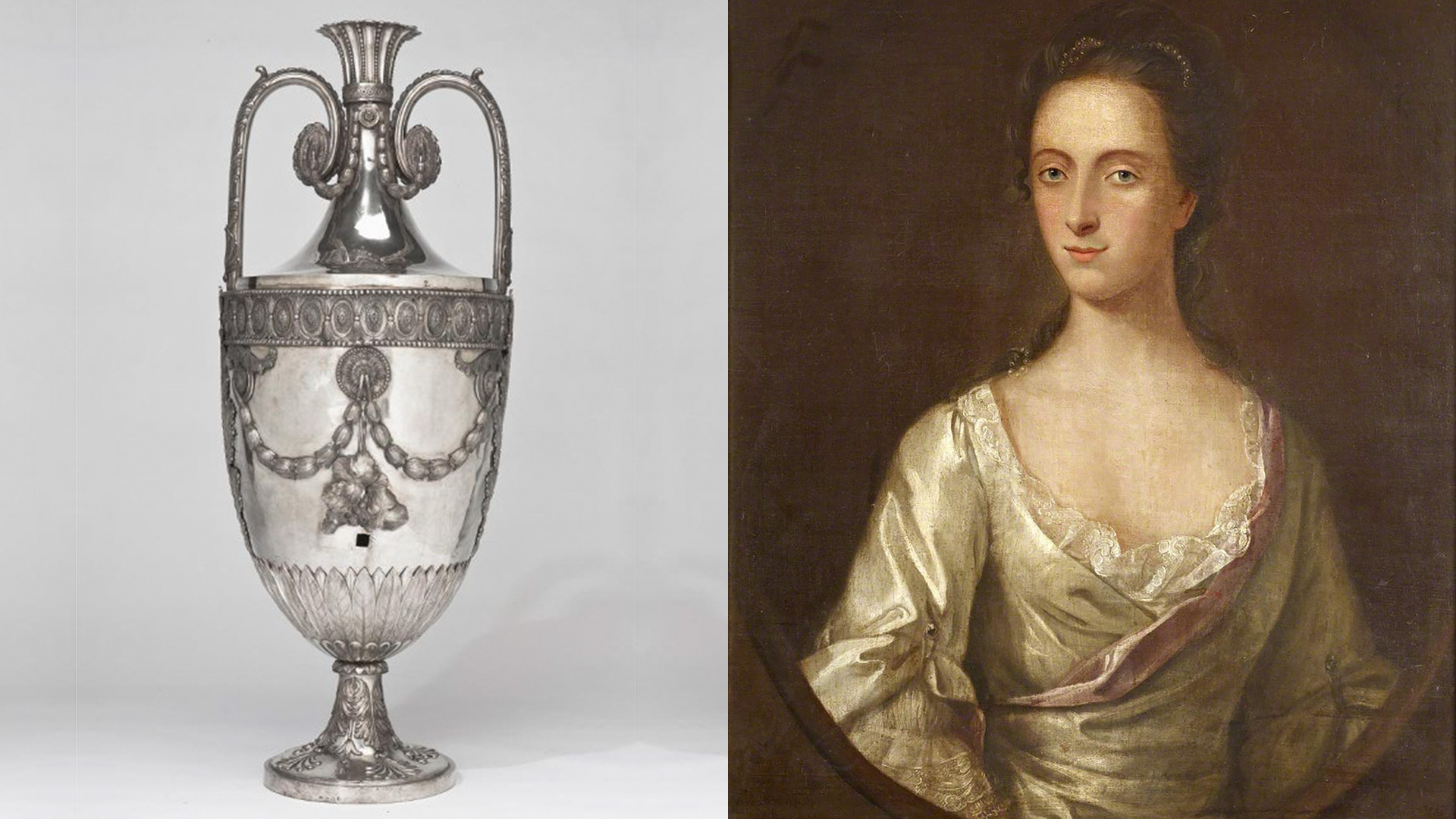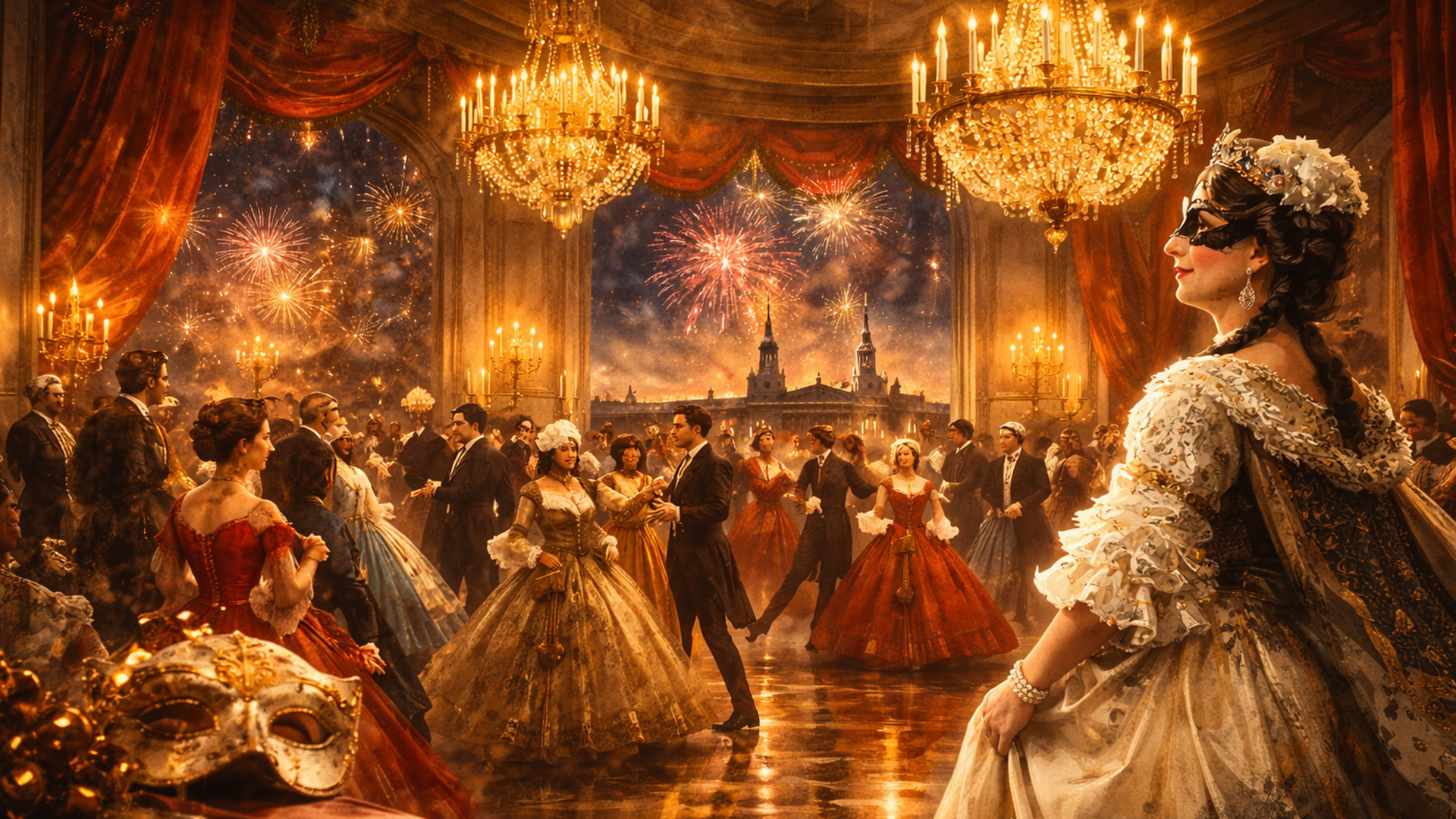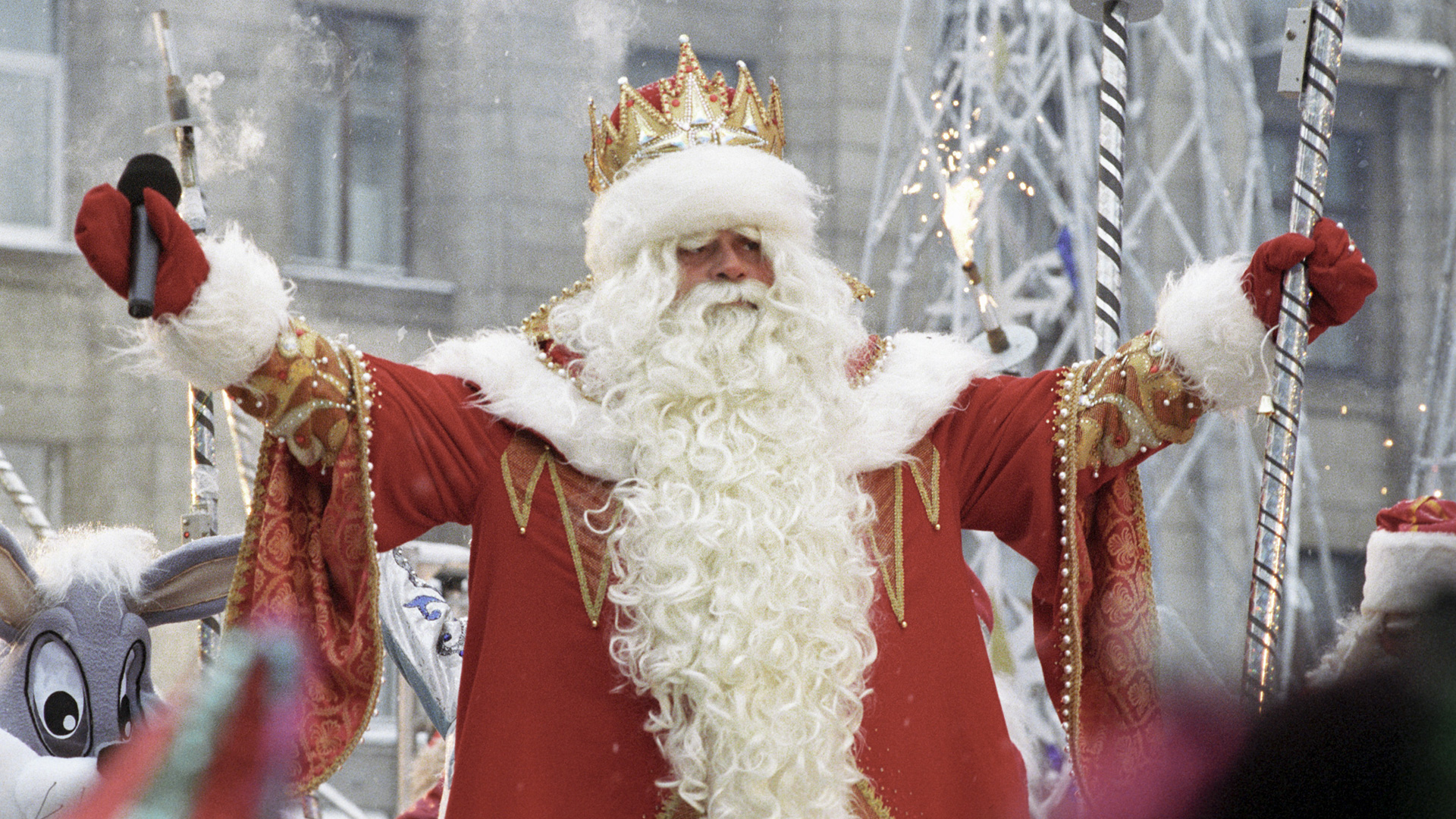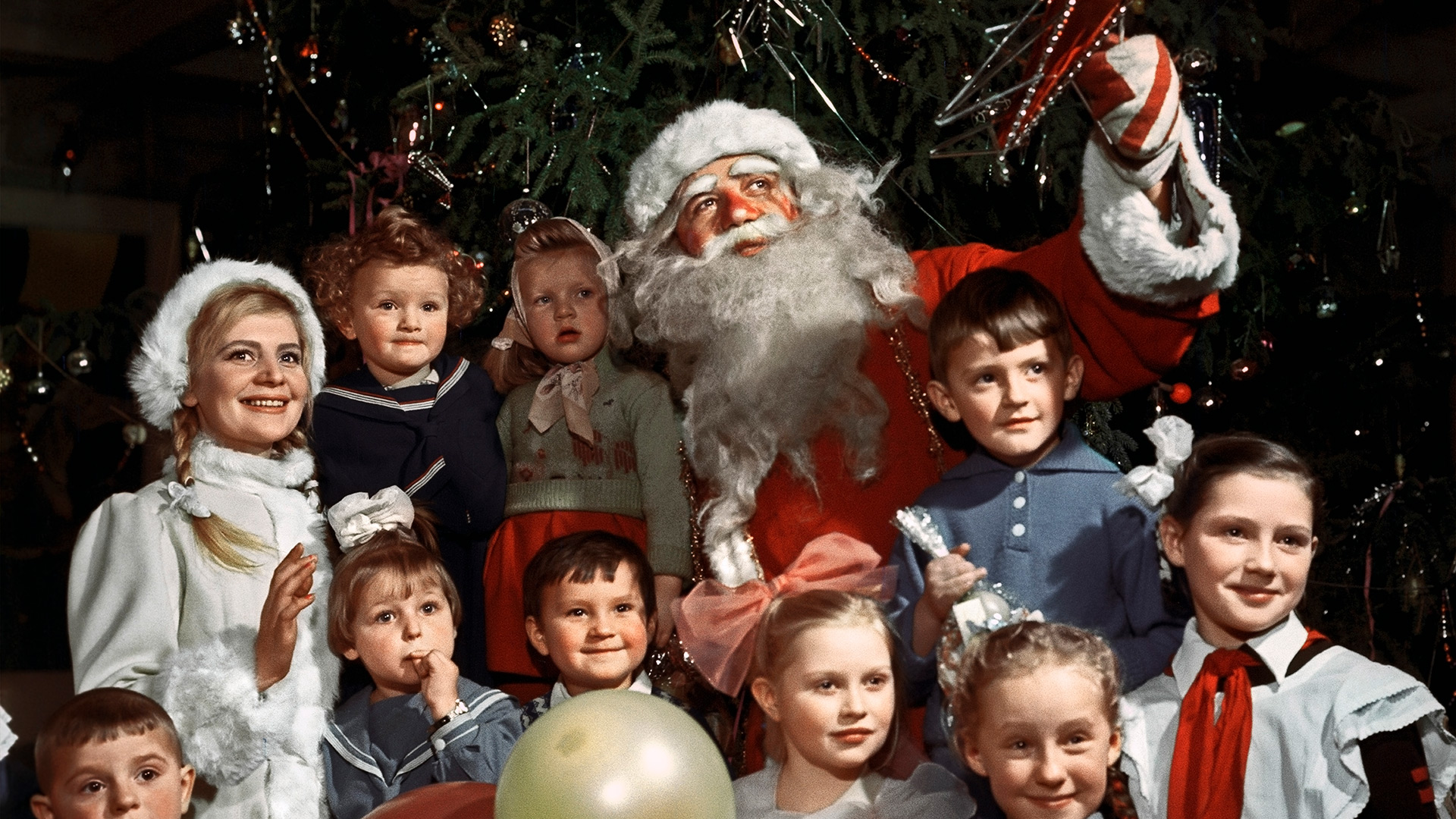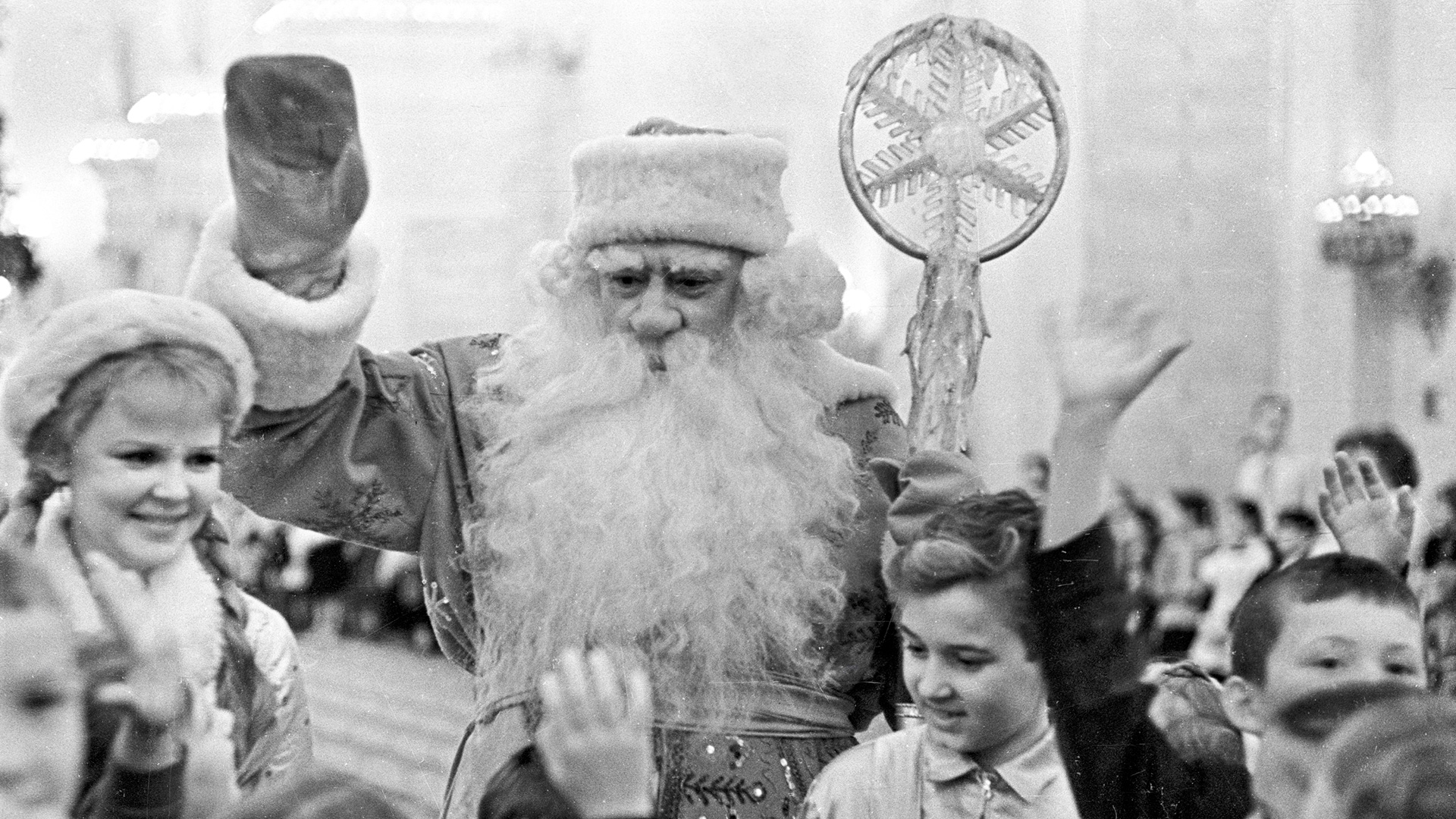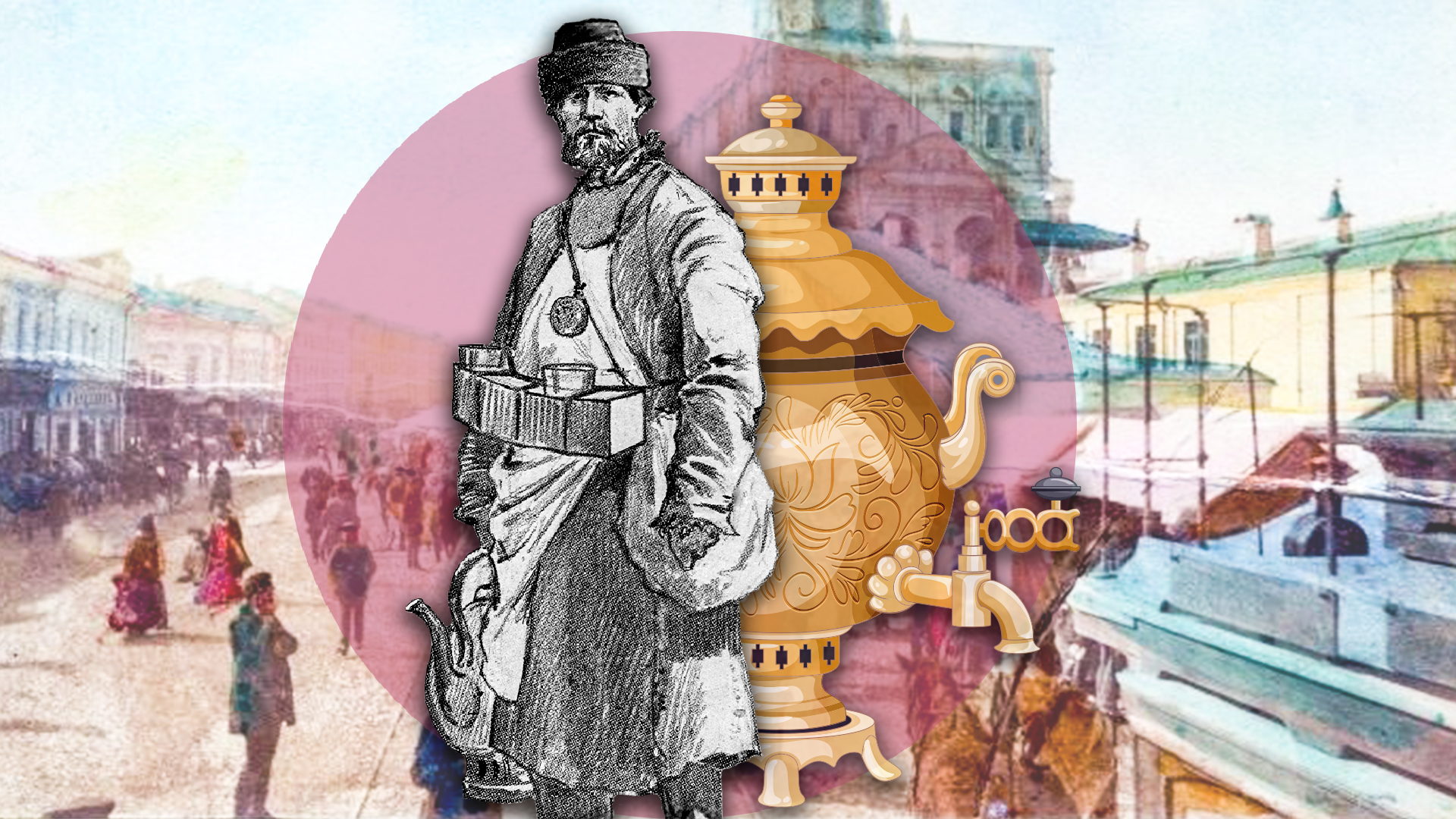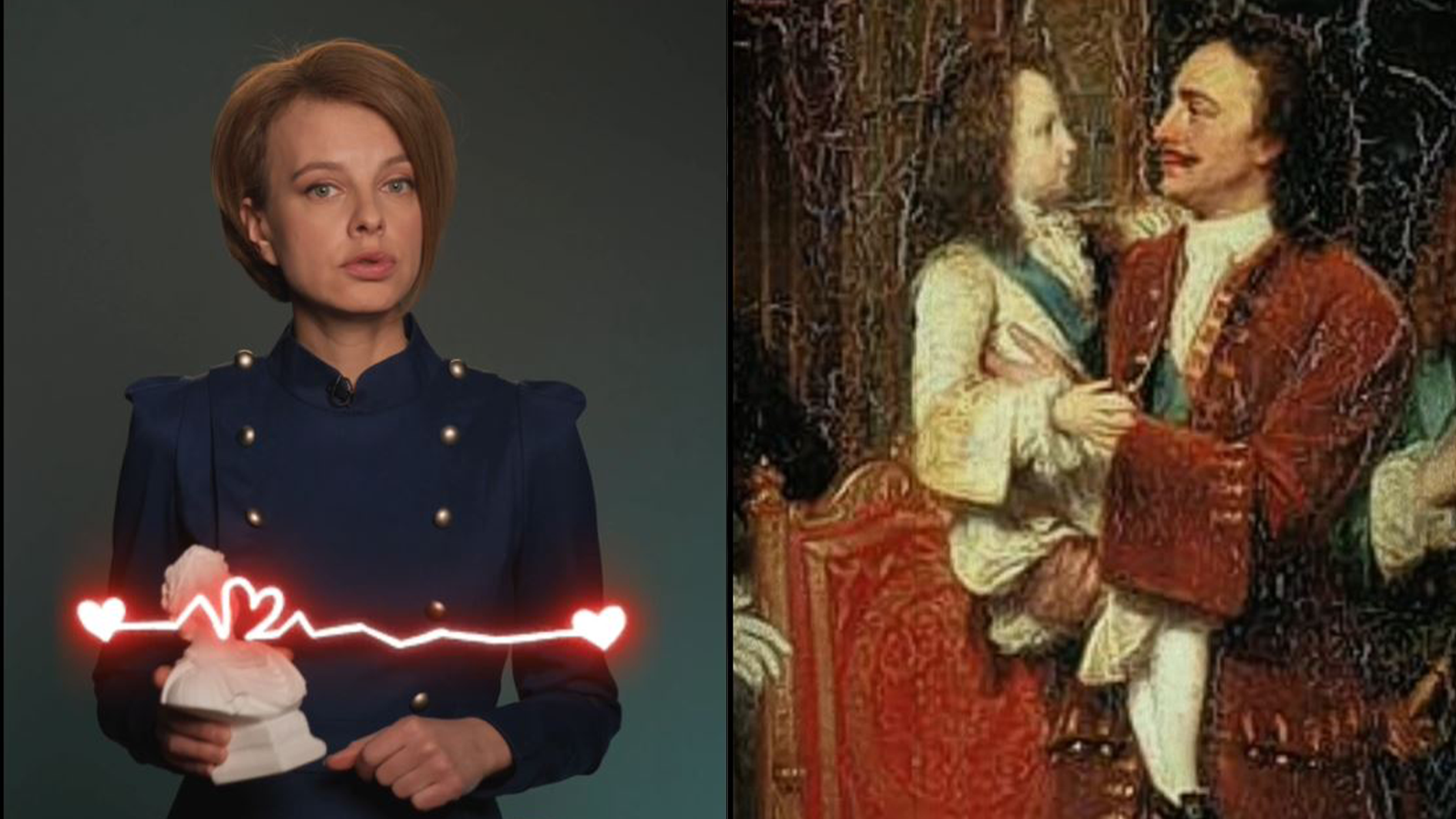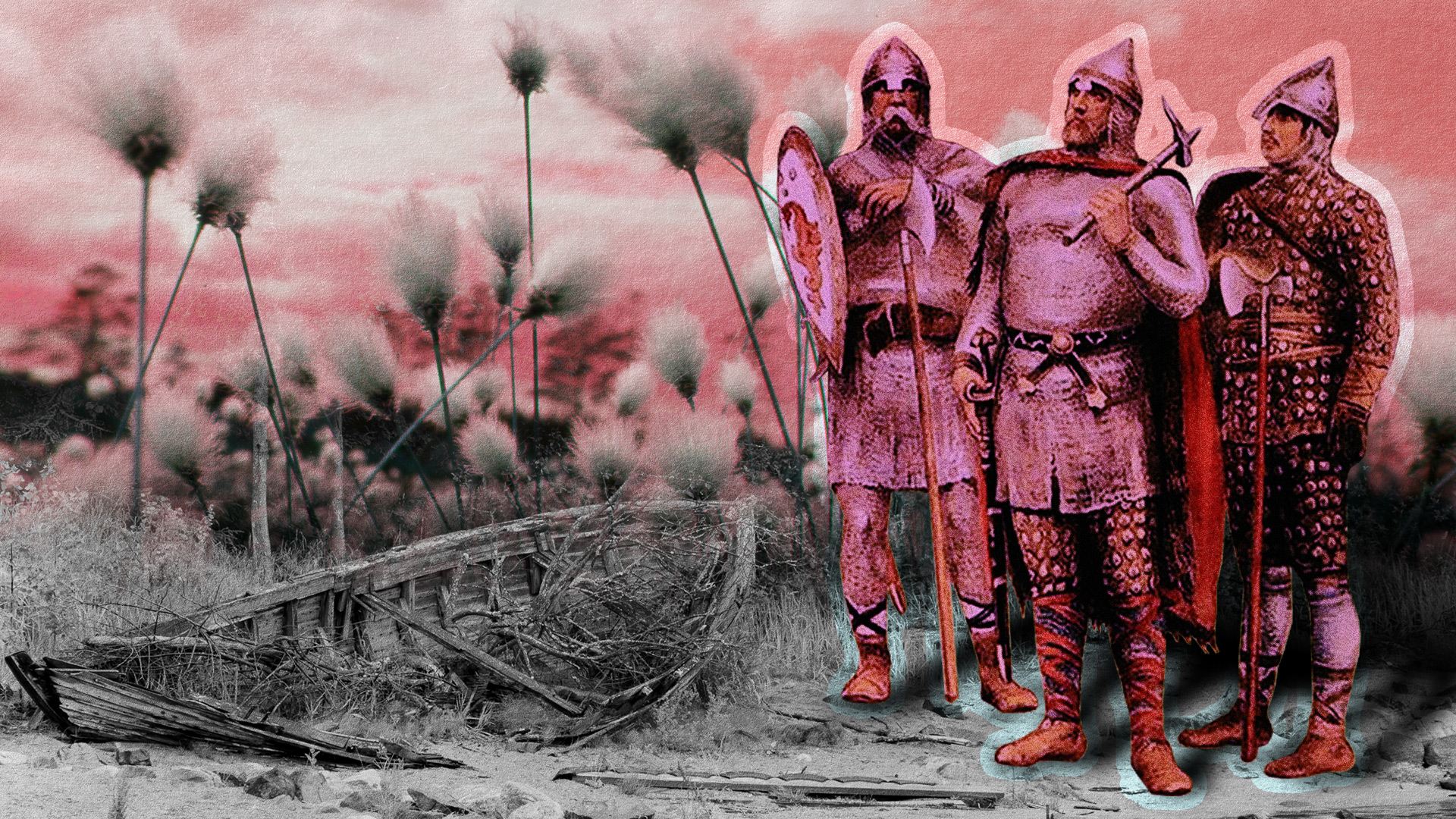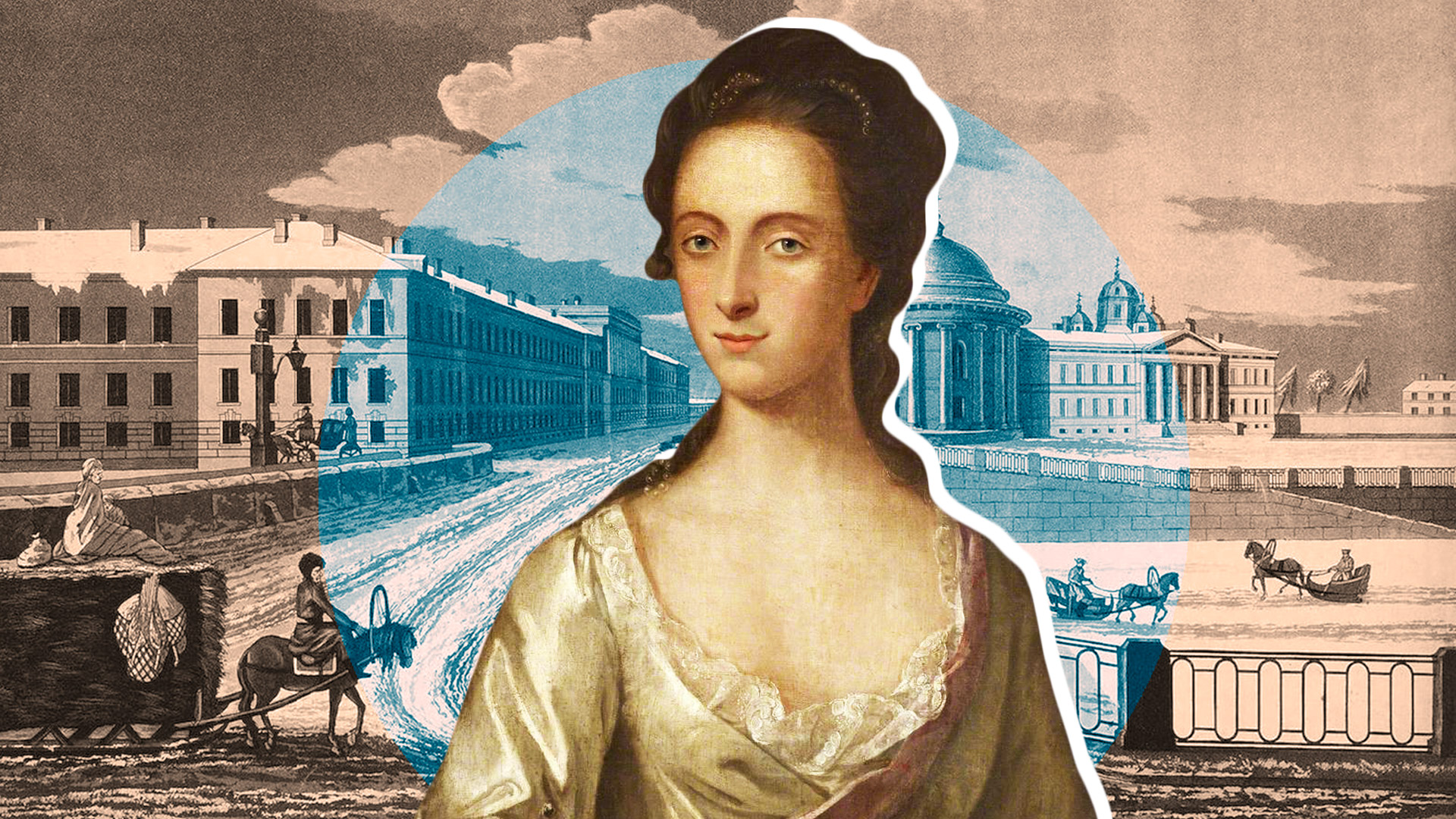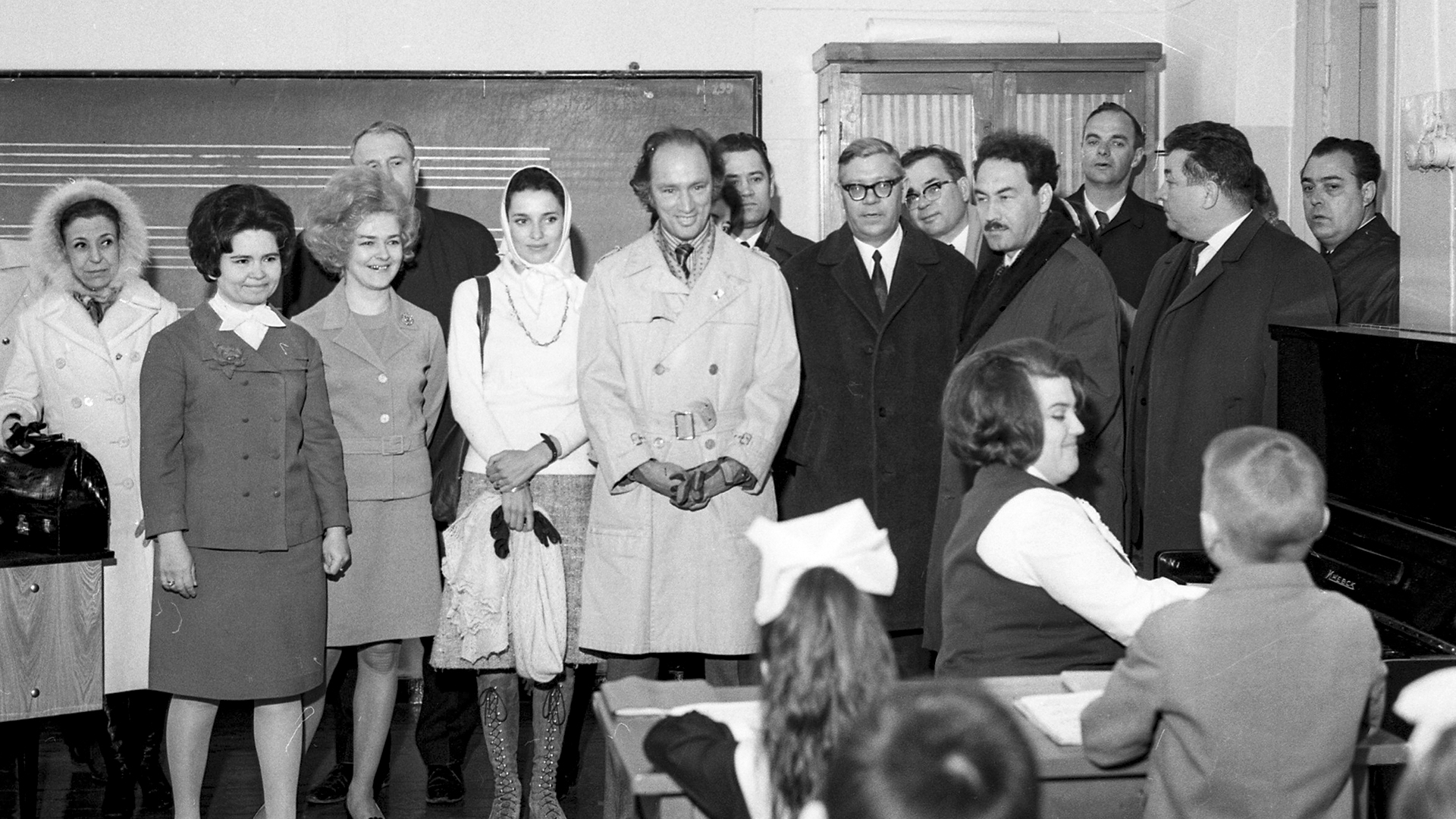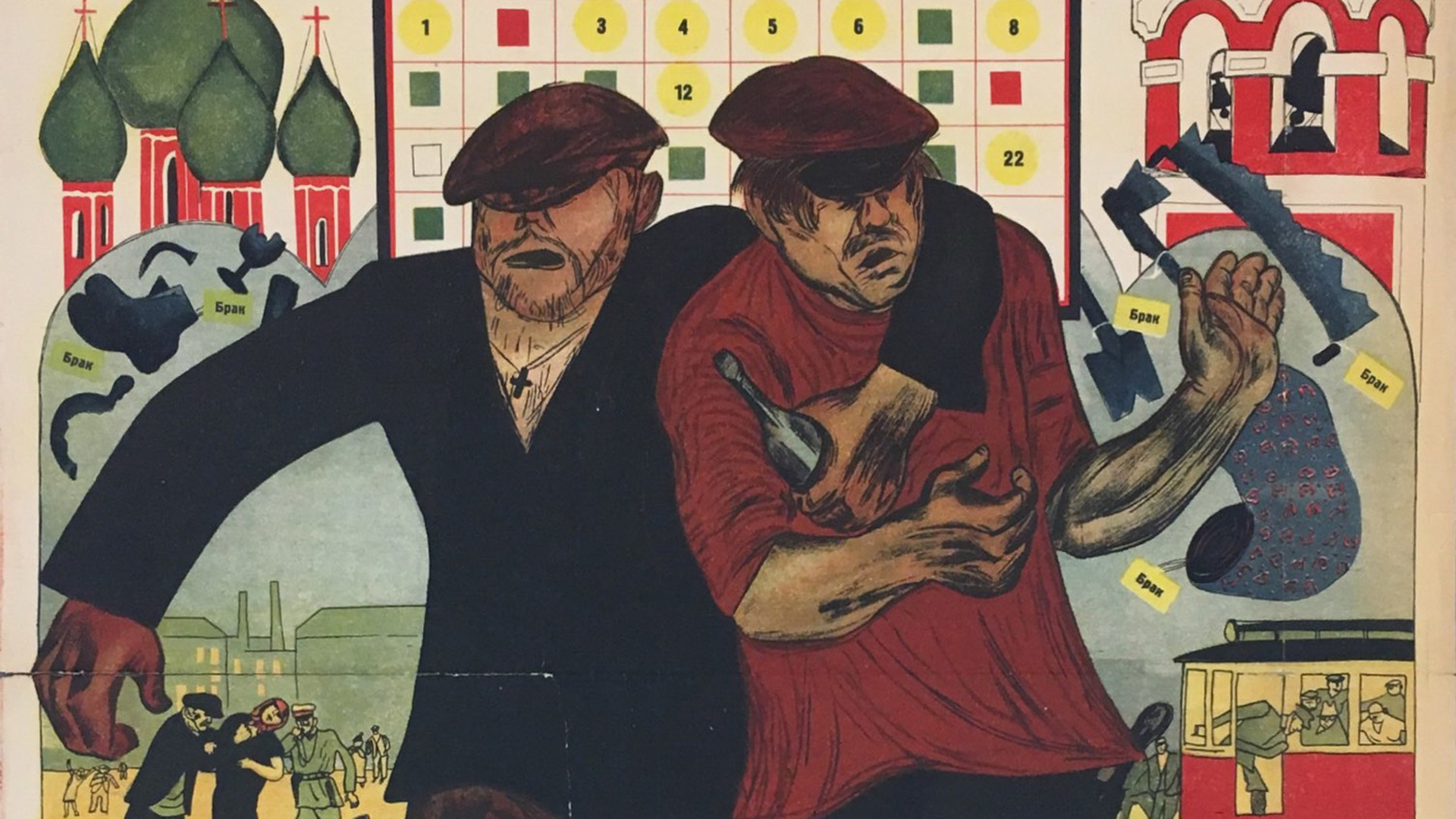
What foreign languages did medieval Russians learn?
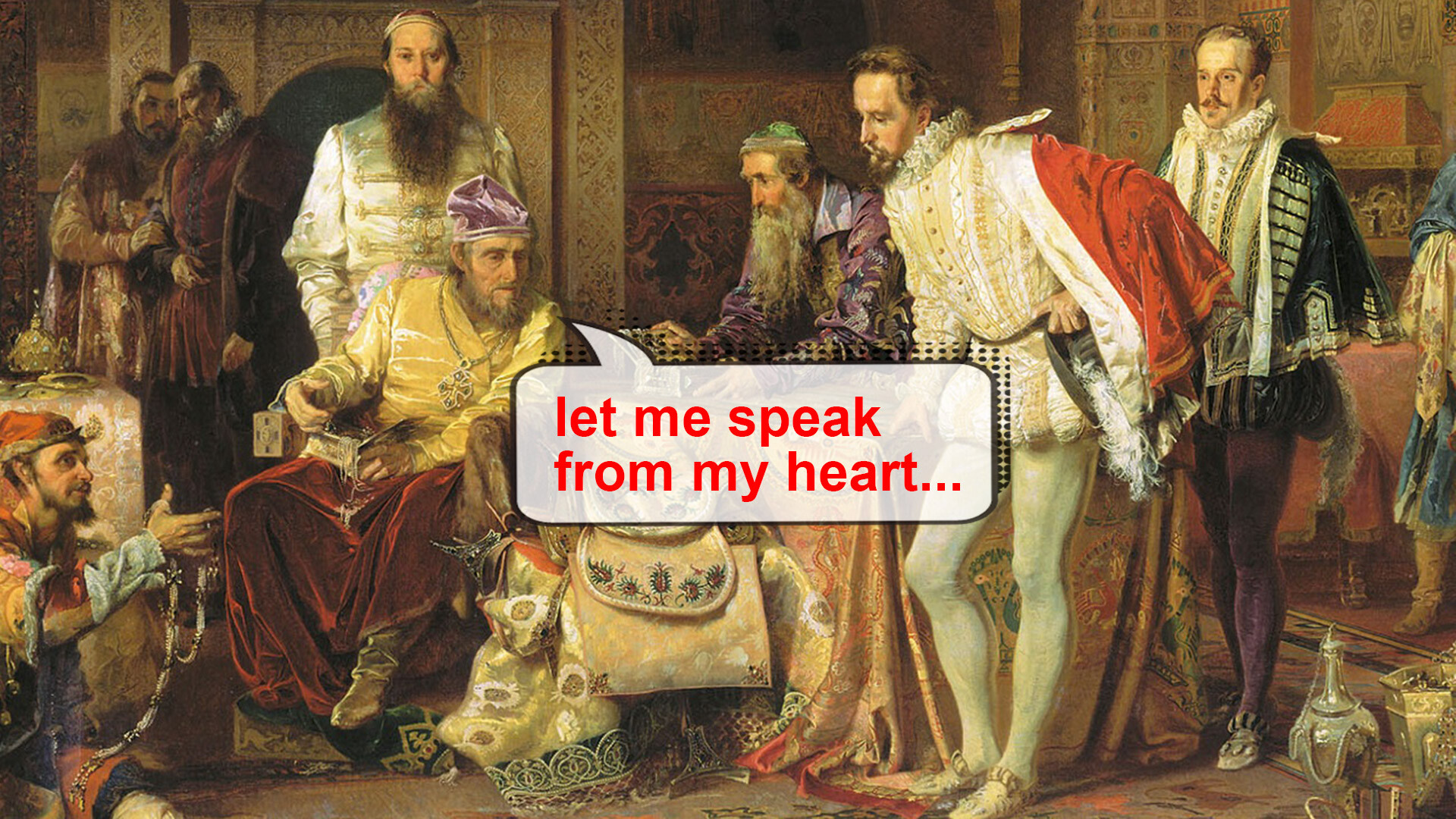
In 988, Prince Vladimir the Great, the baptizer of Russia, opened a school for children from noble families. They were taught "arts" – various disciplines that included foreign languages, for example, Latin, which was the language of European diplomacy. Among the first pupils were the descendants of foreign-born families who resided at Vladimir’s court, and communication in school was often conducted in several languages. In fact, Vladimir's son, Yaroslav the Wise, founded Russia’s first translation school at Kiev's Cathedral of St. Sophia.
How and where were languages taught?
Greek, Latin, and other written foreign languages were usually taught at church institutions. "Azbuka Latine – ne pivo v bratine!" ('The Latin alphabet is nothing like beer in a jug') – goes an old Russian proverb. This indicates that Latin was indeed learned by many people and there were secular schools, for example, the one in medieval Smolensk.
Of course, merchants, mercenaries, and craftsmen learned foreign languages not at churches and monasteries but on their own, in the course of their lives and work. The teachers were those who already knew the language. As nowadays, a "tutor" – a monk, a scribe, an educated warrior, or an experienced merchant – was often visited by pupils who paid for his instruction.
READ MORE: How were foreigners invited to live in Russia?
As researcher Roman Zhanara writes: "information about teaching methods back then is very scarce." When the language was taught abroad, it was learned by the "direct method" – learning words and expressions directly from native speakers in the process of life and communication. When it was taught at home in Russia by non-native speakers the language was learned by translating and memorizing texts.
In those times, however, the requirements for knowledge of foreign languages were much lower – for example, when translating, they usually did not observe the stylistics and composition of the original sentences, conveying only the meaning of what was said. Of course, a large number of people knew only spoken languages – they could explain themselves fluently without being able to read and write.
Latin
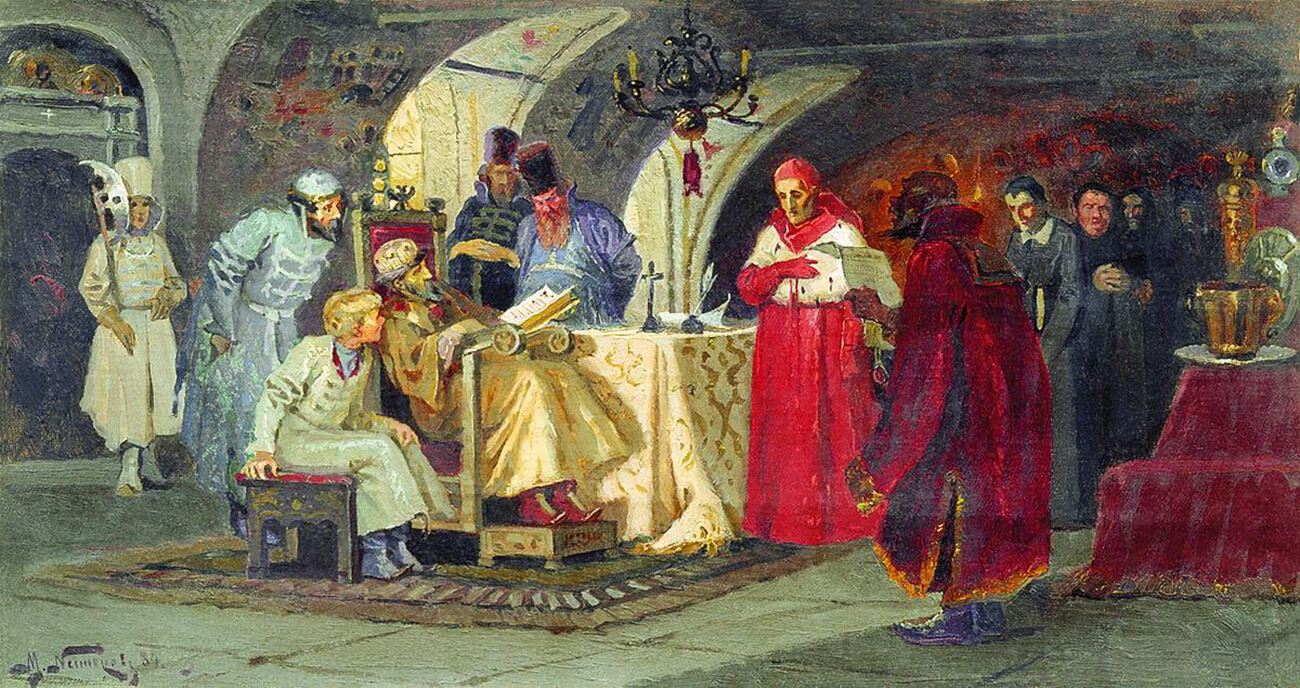 "The papal ambassadors at Ivan the Terrible's," by Mikhail Nesterov, 1884
"The papal ambassadors at Ivan the Terrible's," by Mikhail Nesterov, 1884
Latin was the language of international diplomacy up until the 17th century. Treaties, charters, trade agreements between the Russian lands and European principalities and states were written in Latin. It was also used by diplomats and their staff in official settings.
Catholic church services were also conducted in Latin, and which was known to all Russian Orthodox churchmen. Latin is how they communicated with their European colleagues.
Also, Latin was the main language in the universities of Bohemia and the German states until the 1780s. Almost all Russian young men who studied sciences in Europe had to learn to speak and write Latin, which remained the international language of science in the 18th century. The great Mikhail Lomonosov, for example, was proud of his knowledge of Latin.
Greek
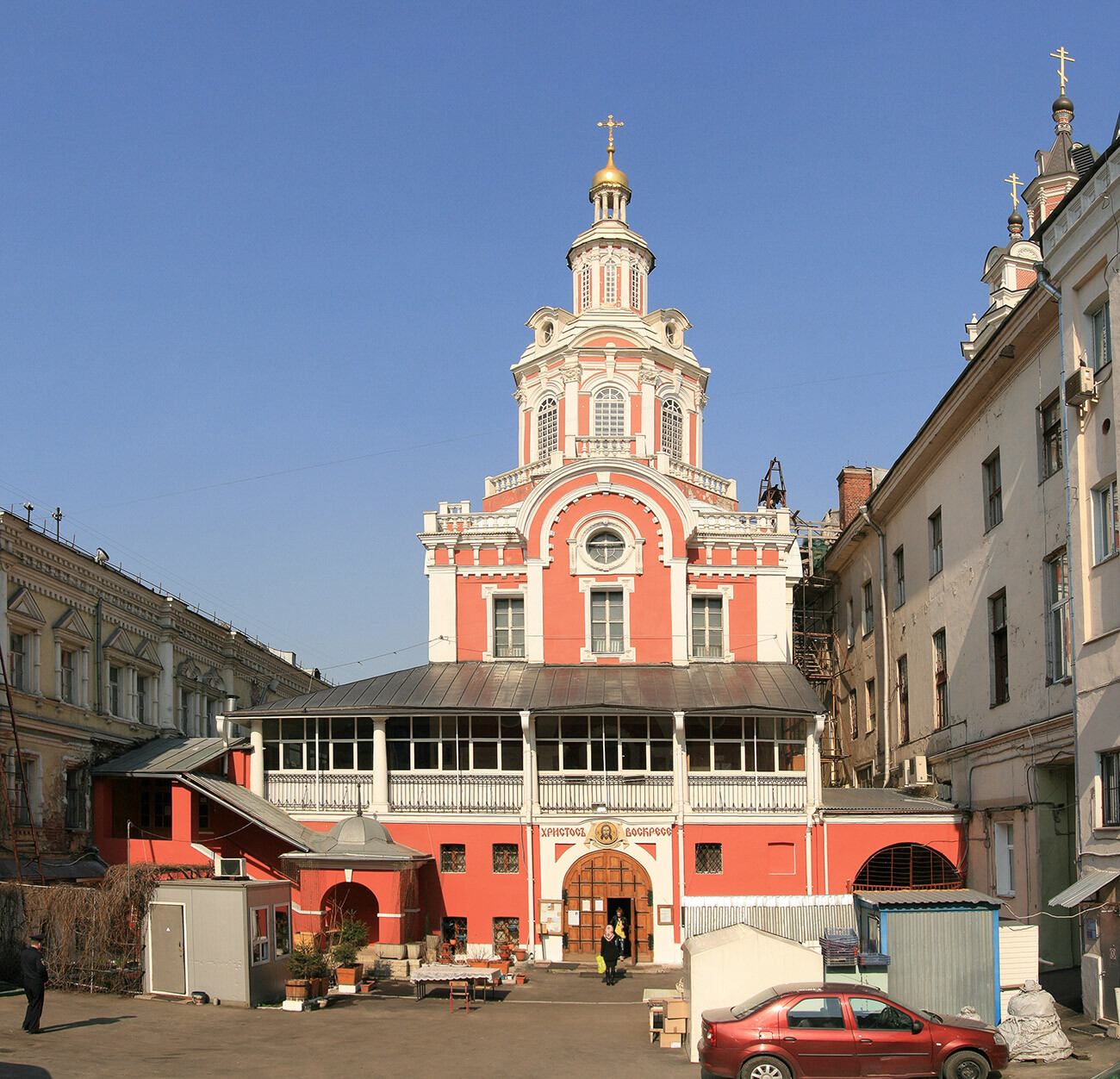 Church of the Holy Mandylion at Zaikonospassky Monastery, Moscow. To the left of the church, you can see the former chambers of the Slavic Greek Latin Academy. This is one of the places where Greek was taught in Moscow.
Church of the Holy Mandylion at Zaikonospassky Monastery, Moscow. To the left of the church, you can see the former chambers of the Slavic Greek Latin Academy. This is one of the places where Greek was taught in Moscow.
The population of the Russian lands had been in contact with Byzantium since antiquity, and therefore had to know the Greek language. Before mastering the Slavic language, the first Orthodox missionaries who came to Russia conducted services in Greek. However, the Bible was translated into Church Slavonic as early as the 9th century, and services in the Russian lands soon began to be held in this language. Greek, nevertheless, continued to be used for communication with "Greeks", which was how all inhabitants of Byzantium were called in medieval Russia.
Merchants, monks, mercenaries, diplomats and scribes – this is the circle of people who traveled from the Russian lands to Byzantium and back. They did not know classical written and oral Greek, but they definitely communicated orally in colloquial Greek – ‘demotic Greek’. In the 10th-11th centuries the educated higher society of medieval Russia either knew Greek or had translators, since communication with Byzantium was very close.
Subsequently, written Greek was the first foreign language learned by all who entered the clergy. With the emergence of classical education in Russia (late 18th century), Greek became compulsory for philologists, linguists, and historians. However, Greek was not taught at the Lyceum of Tsarskoye Selo. In general, Greek was never widely known among the Russian population.
German
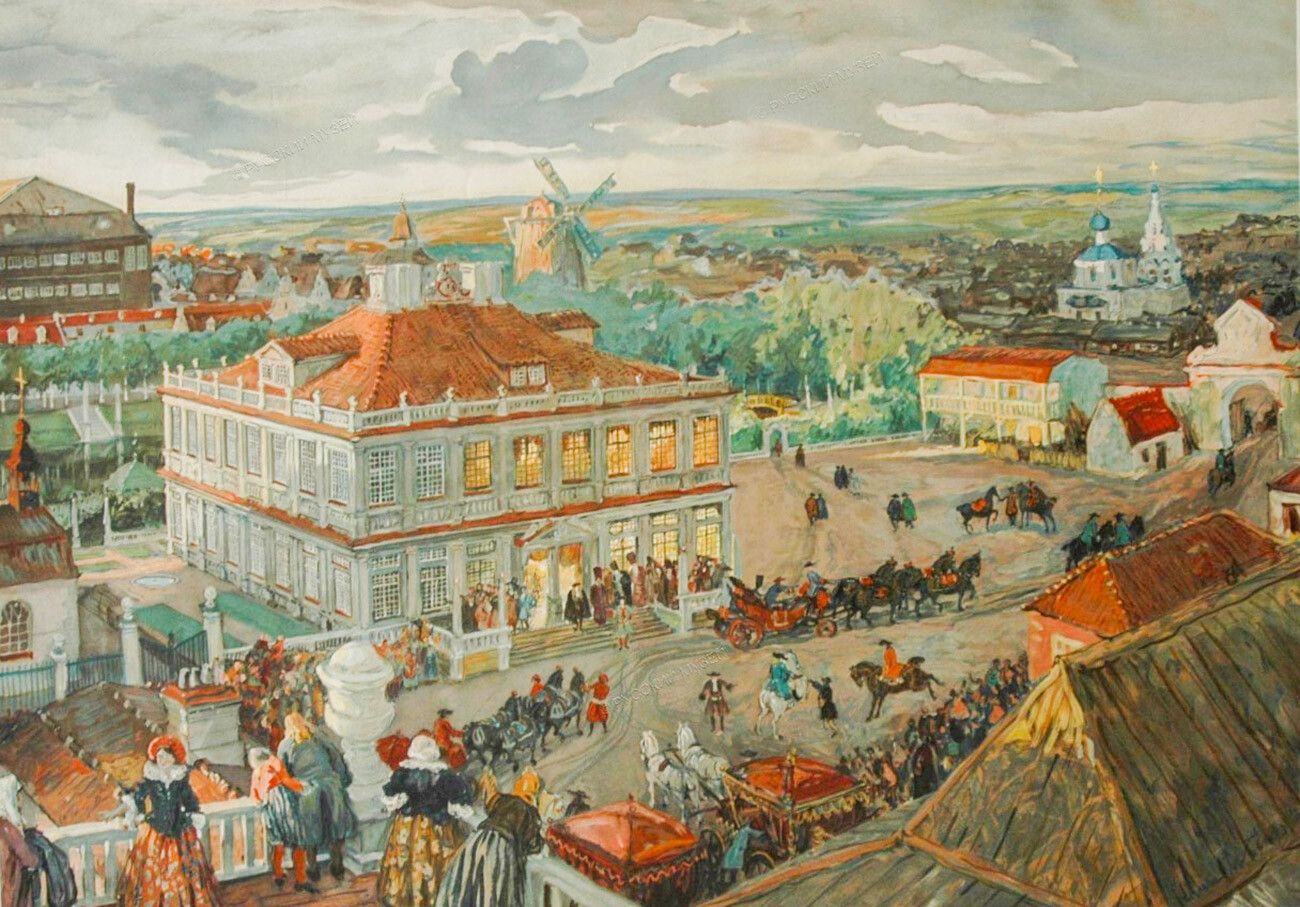 The German Quarter in Moscow, by Alexander Benois
The German Quarter in Moscow, by Alexander Benois
Novgorod governors and merchants spoke German, Swedish and Polish. They were in constant contact with native speakers of these languages. Swedish and German merchants sent their sons to live and learn the secrets of trading in Novgorod. It was also common that young Russian merchants and officials also spent time abroad for linguistic training.
The German language was spoken by craftsmen who came from the principalities of central Germany – armorers, high-class craftsmen, civil and military engineers, as well as ordinary soldiers. Starting in the 15th century, they were hired in large numbers to serve the Russian princes and tsars. The Old and the New German Quarter in Moscow, which the young Tsar Peter often visited, was a kind of a separate German town on the Yauza River, where German speech was heard in the streets (though English and Dutch was also heard to a lesser extent).
READ MORE: Why were there so many Germans in the Russian Empire?
In the 18th century, the German language was still widespread in scientific and military professions, as these communities were constantly replenished by Germans who came to serve in Russia. But by the second or third generation these people began to speak Russian as their native language.
In the 19th century, Russians began to learn German with new vigor – it spread among the intelligentsia, who wanted to read Kant, Fichte, Marx and Hegel in the original. Many Russian revolutionaries, who had connections among socialists in Germany and Switzerland, also spoke German, including Vladimir Lenin.
French
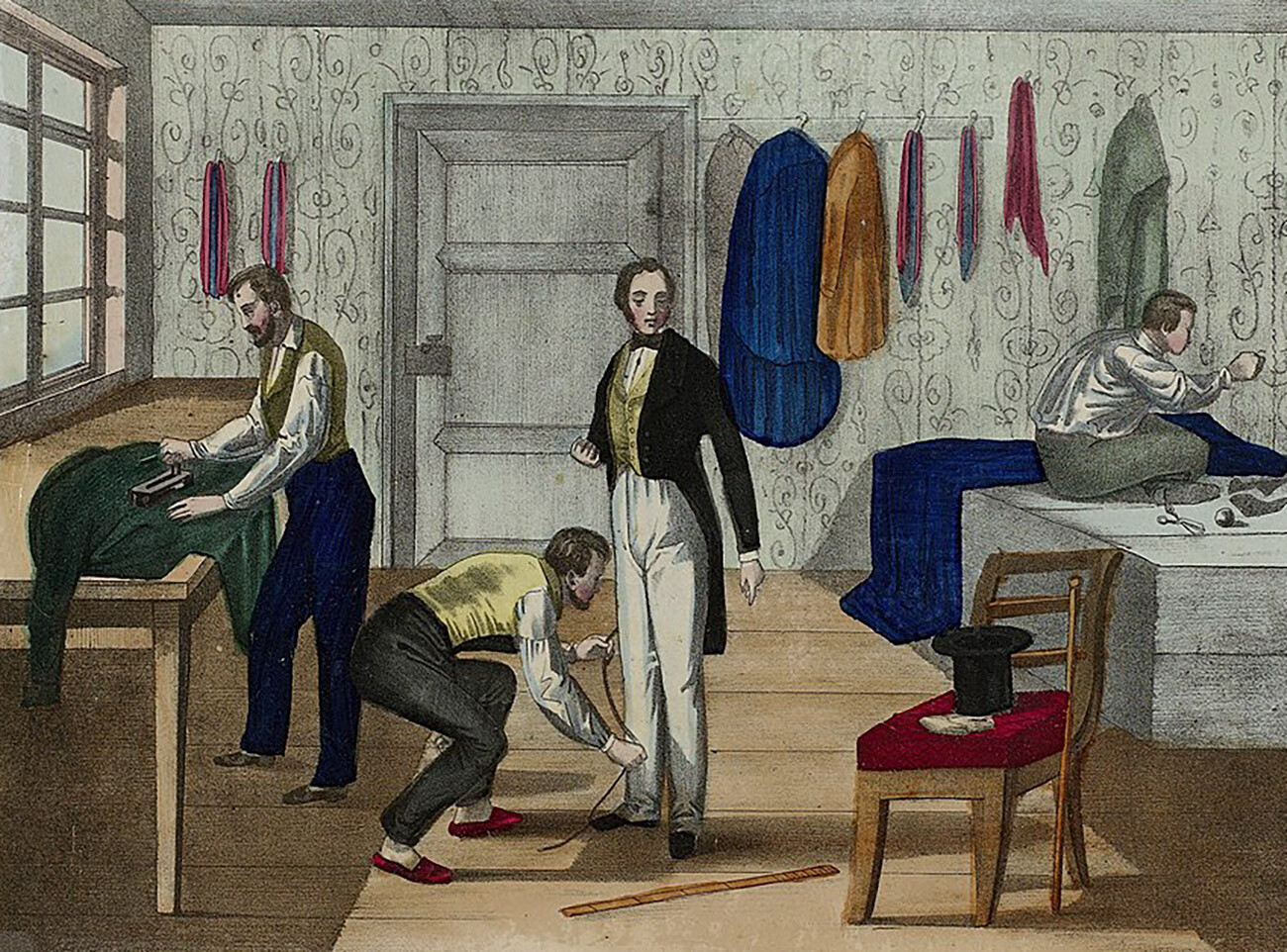 18th-century French tailors, an illustration
18th-century French tailors, an illustration
Under Louis XIV (1638-1715) France became the chief military and political arbiter of all Europe, and the Treaty of Rastatt in 1714 was the first international document written in French. From the beginning of the 18th century, knowledge of French was already mandatory for any diplomat.
As a nation of great culture, the French served as tutors and educators of noble children throughout Europe, including Russia. Then, after the French Revolution, Russia became a haven for thousands of French monarchists who joined the ranks of the Russian army and civil officials. In addition, at the end of the 18th century Russia witnessed a boom in women's and men's fashion, and a huge number of French hairdressers, stylists, tailors and cooks appeared in the country.
READ MORE: 4 reasons Russian nobility spoke French like natives
French also became the language of the upper class – all the Russian nobility spoke French, the level of knowledge of which became a universal "calling card". Even a nobleman of meager means who spoke French fluently could be accepted in the highest circles because of his linguistic knowledge.
All private correspondence and memoirs were written in French, as well as love notes and scrapbook poems. Use of the French language was also useful in concealing the content of one’s conversations from servants and other members of the lower class. A break from Francophonie came only in the wake of the Patriotic War of 1812, but French remained one of the main languages of educated society throughout the 19th century and almost until the Revolution in 1917.
English
 "Ivan the Terrible shows his treasures to the English ambassador Horsey," by Alexander LItovchenko, 1875
"Ivan the Terrible shows his treasures to the English ambassador Horsey," by Alexander LItovchenko, 1875
English merchants, gunsmiths, and artisans began to appear in Russia in the 16th century – for example, diplomat and nobleman Jerome Horsey cooperated with the tsarist court in Moscow for more than 20 years and lived in Russia for a long time.
However, the English language did not spread widely. When at the end of the 18th century the metallurgist and gunsmith Charles Gascoyne arrived in Russia at the invitation of Catherine the Great to manage the Karelian metallurgical plants, he communicated in English in his own circle and for the rest of his life he used an interpreter for any conversation with his Russian subordinates. But everything changed after Russia and the British Empire became allies in the war against Napoleon.
READ MORE: 5 Englishmen who nobly served Russia
In the 18th century, Russian aficionados of British literature learned English, and during Pushkin's time knowledge of the language became the mark of a brilliantly educated man. Pushkin himself learned English so that he could read Byron in the original. After the Great Patriotic War of 1812, more books in English appeared, and an English tutor was valued, of course, much more than a French one. From the first half of the 19th century, English began to be taught in the universities of Moscow, St. Petersburg and Kazan, and trips to England became obligatory for educated noble youth.
Turkic ("Tatar") languages
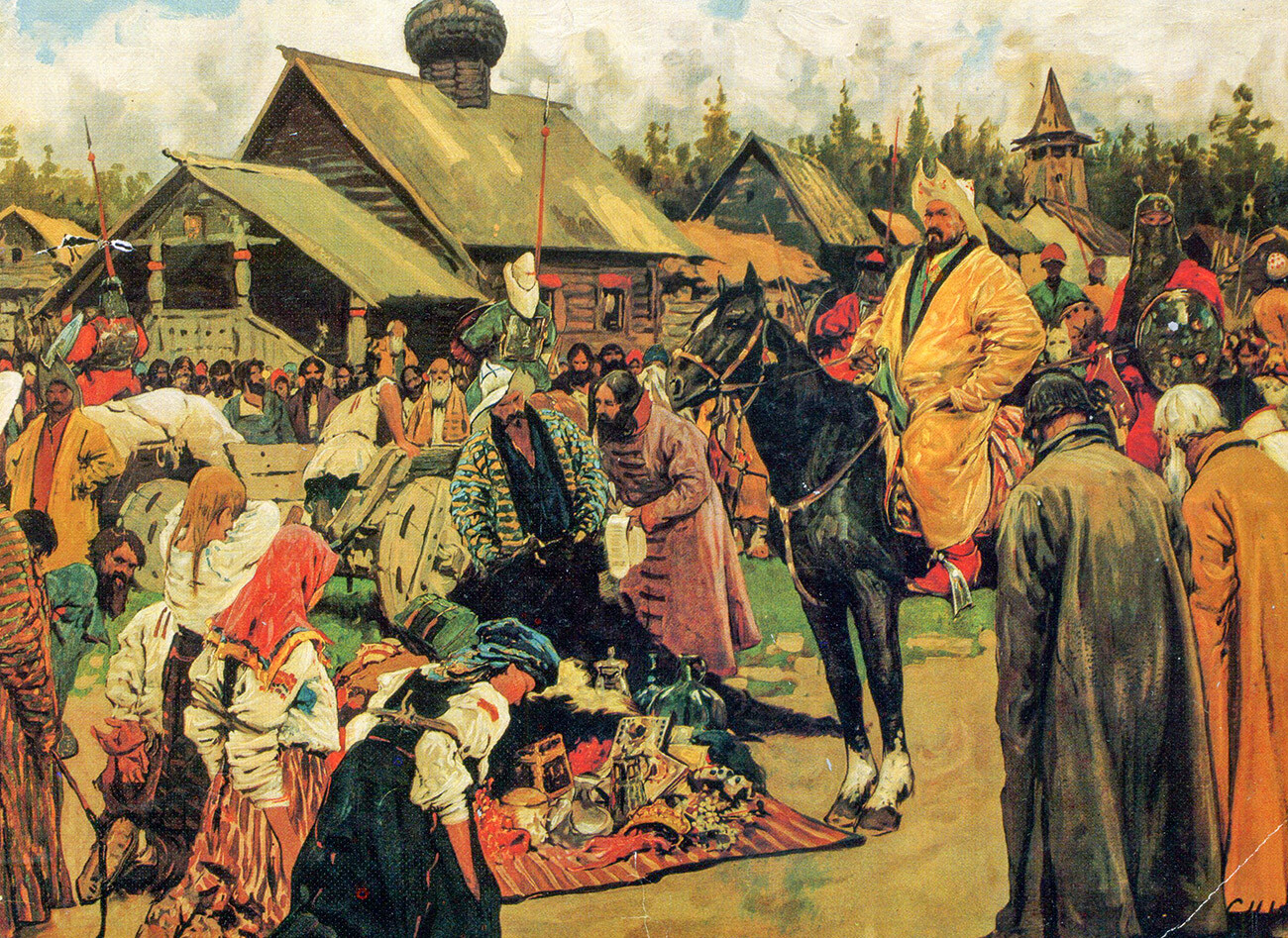 "The Baskaks," by Sergei Ivanov. Baskaks were Mongol officers who collected tributes from the Russians on behalf of the Golden Horde.
"The Baskaks," by Sergei Ivanov. Baskaks were Mongol officers who collected tributes from the Russians on behalf of the Golden Horde.
There once was a whole district of interpreters in Moscow – the Tolmachevskaya Quarter (tolmach in Old Russian means “interpreter”). It was located in Zamoskvorechye, south of the Kremlin, across the Moskva river. This part of the city was a haven for many "Tatars" – that is, various Turkic-speaking traders, craftsmen, and various other people. They had lived there since the 14th century, from the time when relations with the Golden Horde began.
The first "Tatar" military men and merchants – in quotation marks because while their ethnicities were very different all of them were called by the generic name of "Tatars" – traveled to Russia in the company of their tolmachs. They settled in Zamoskvorechye or nearby. This is how Tolmachevskaya Sloboda was formed – a living exchange and a school of translation from Russian to Tatar, and back again.


